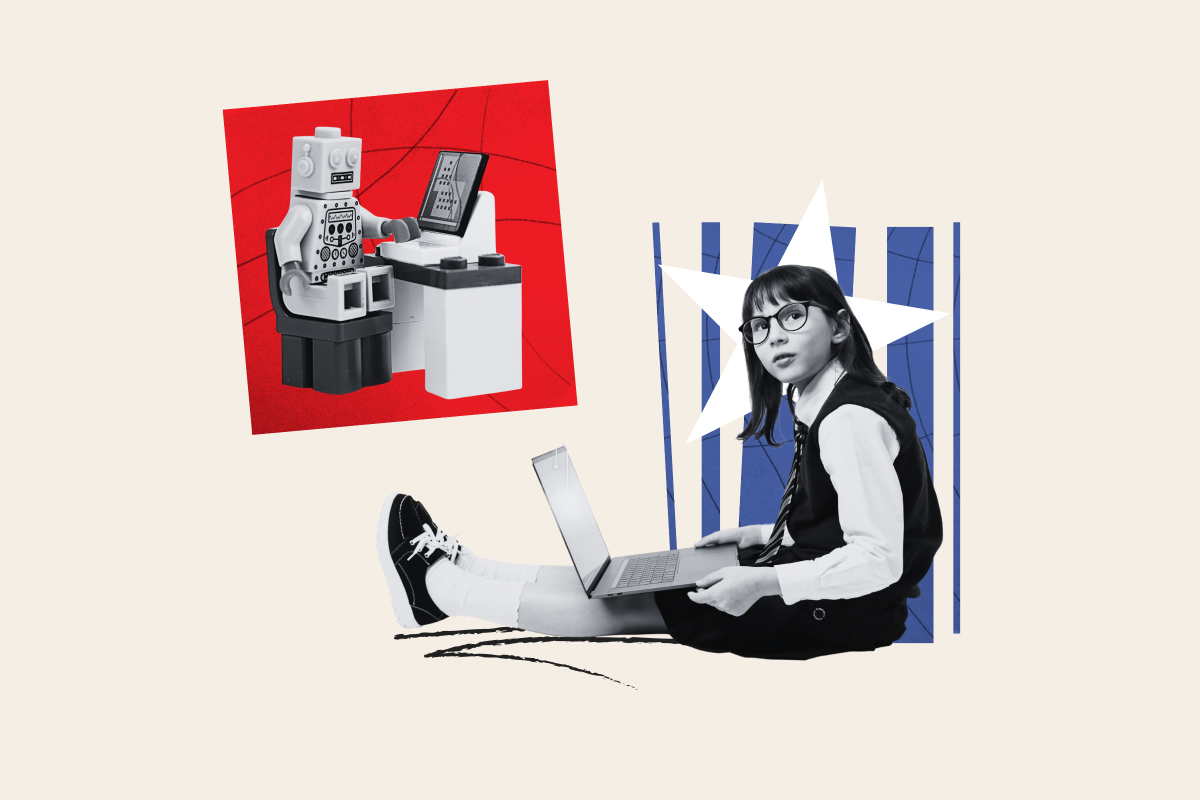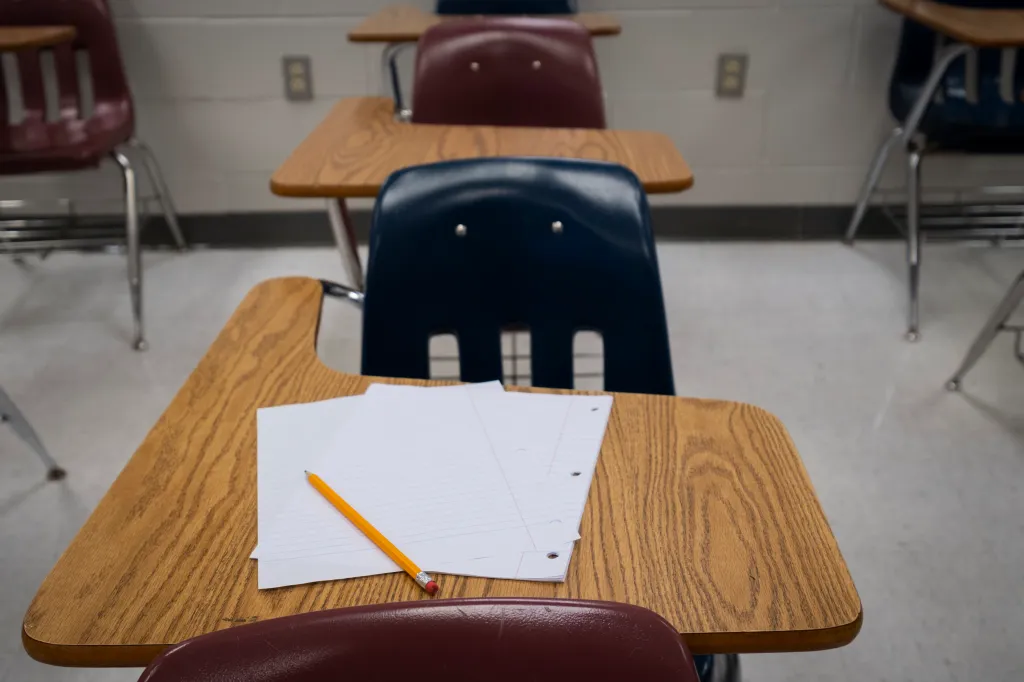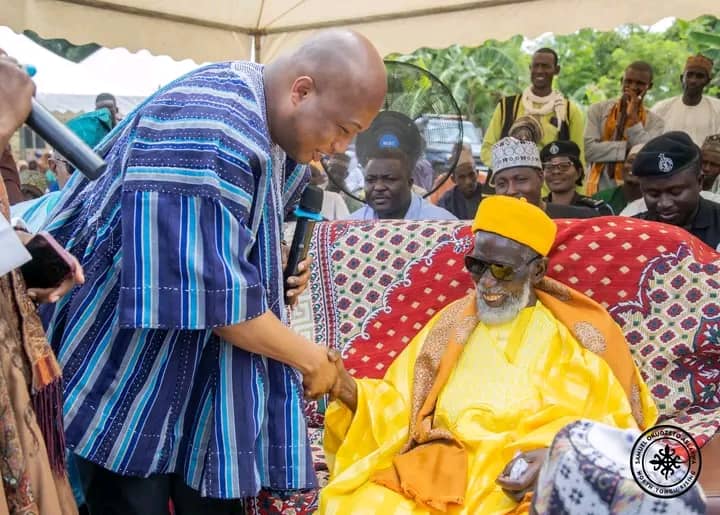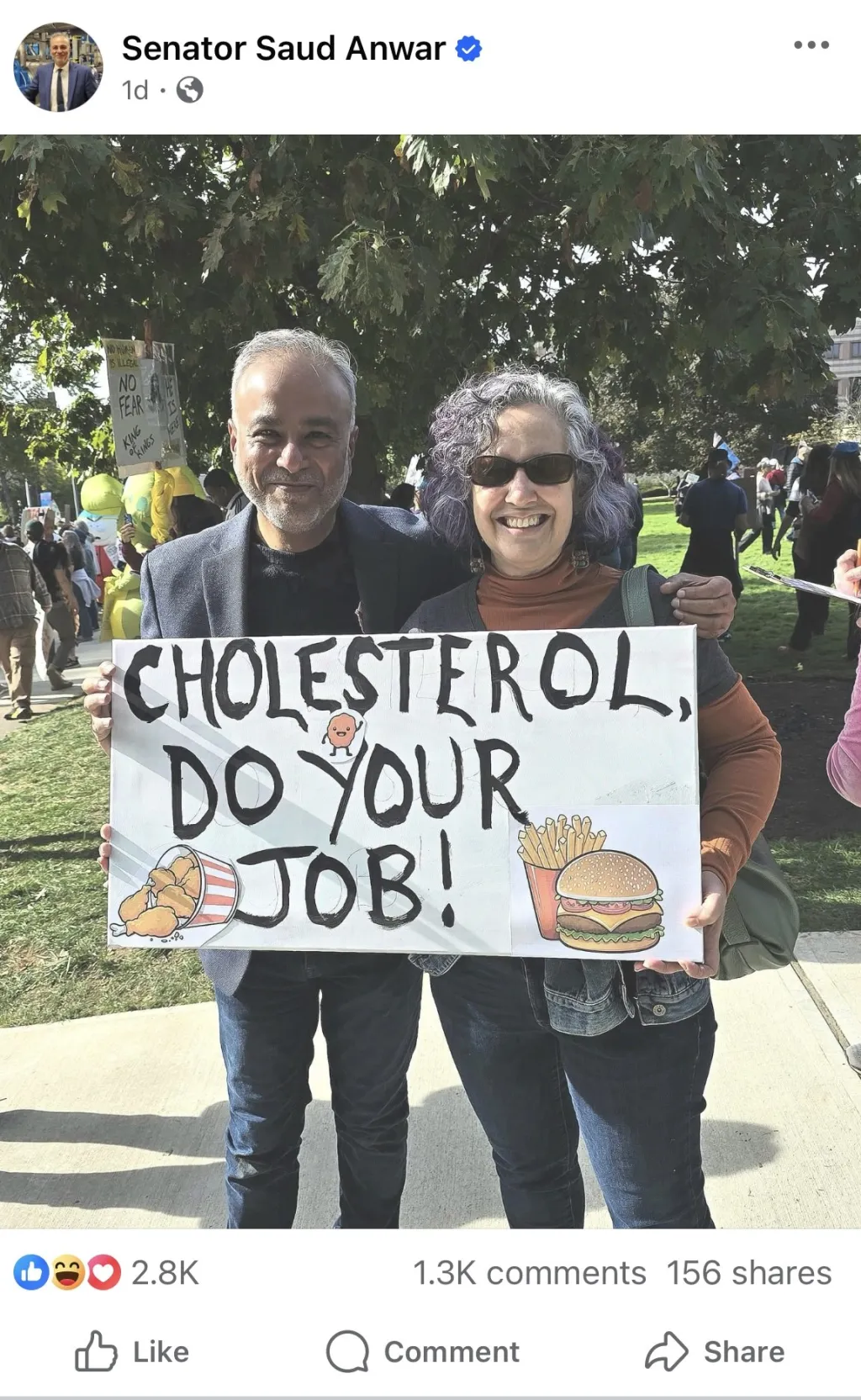Copyright Newsweek

A former venture capitalist says schools across the United States must adapt to prepare children for a world changed by artificial intelligence. In an interview with Newsweek, Ted Dintersmith, who turned his focus to educational reform over a decade ago after a successful career in tech innovation, said high schools today are mostly putting graduates on a path to college or low-paying jobs. "I call it college or Chipotle,” he said. “You either roll it forward and go into college for four years or two years or you get a lousy minimum wage job.” Dintersmith said that while he is “pro-education,” the emphasis on college as the only route to success is “all wrong.” With high tuition costs, low graduation rates and growing underemployment among those with college degrees, he argues that the traditional path often fails many students. “Already you're seeing the jobs for college grads drying up,” Dintersmith said. If you’re “just trained to carry out assignments that AI does perfectly, who wants to hire you, right?” Dintersmith, who visited 200 schools across all 50 states before writing a book called What School Could Be, said educational policy in the United States remains "stuck in time.” Schools “obsess about test scores,” he said. “The problem is that test scores are not aligned with the skills and mindsets people need.” What they need to do, he said, is stop focusing on drilling students in preparation for standardized testing and incorporate career-based leaning so students are set up to succeed in today’s AI-driven world. His new documentary, Multiple Choice, follows a public school district in Virginia that requires every student to participate in vocational training, such as welding or carpentry. “What the film shows is, what if we made better use of those four years and equip kids with multiple interesting options instead of college or Chipotle?” Dintersmith said. “Hence the title, Multiple Choice…don't prepare kids for multiple choice exams. Give them the skills and mindset so they have multiple interesting life choices at age 18," he said. He advises schools and educators to embrace AI, take advantage of career-based learning and challenge existing accountability metrics. “It's three simple things: lean into AI, shift more of the focus in school to creating and carrying out bold, interesting initiatives,” he said. “Second thing is, take advantage of career-based learning….those career-based learning opportunities are there. Lean into them, celebrate them, encourage kids to do a lot more of them, even, dare I say, expect every kid to do a lot of it. “Then the third is to really challenge existing accountability measures…if you still hold schools and districts accountable to reading and math scores, change is very difficult.” Read the interview with Ted Dintersmith below: Can you tell me about yourself and what made you turn from venture capital to education reform? I had a long career in technology innovation, particularly in venture capital. Five decades of watching how fast machine intelligence is improving, and as it improves, the ramifications it has for what skills and mindsets people need for career, citizenship and life. Schools are just frozen. They are stuck in time. And the challenge has been, I think, that schools obsess and policymakers obsess, everybody obsesses about test scores. And the problem is that the test scores are not aligned with the skills and mindsets people need. I was really lucky. I think venture capital was a great career for me and I sort of hit a point where I've done well enough that I'm not going to have to worry about money going forward. When my kids got to middle school, it was like alarm bells. At first I thought, maybe it's just this school, that they were being pushed to do well on things I thought they made no sense and being discouraged from doing what I thought was really the right types of skills and mindsets for them to dive into. And so I started visiting their schools and reading books and interviewing people. I just said, "oh my gosh, it's an education model. It's not a particular school." And if we've got this wrong all across a big, sprawling nation, there's going to be hell to pay for this. As somebody who's gotten to all 50 states, visited 200 schools, we have gotten this all wrong kind of everywhere and we just keep getting it wrong. We feel like, well, if we just did more drills and worksheets, it would all work out fine, but it doesn't work out fine. What were your biggest takeaways from visiting those schools? So I wrote a book about it called What School Could Be. The takeaways were, if you look hard, you can find examples of great learning experiences, and those are what I profile. It's what school could be, insights and inspiration from teachers across America. You need these dedicated teachers who go against the system to unleash their kids on really interesting challenges. It’s just that they're marginalized, they're on the edges of things and not the mainstream. And so I tried in the book to also articulate what are those conditions that lead to those really great breakthroughs. You know, it's always the teachers’ or the principals’ idea. Their superior has their back, and they bring parents and students around to convince them that this is what we should be doing. You’ve got a new documentary called Multiple Choice. What’s the message behind it? When I got going on this, I decided as my first big contribution to do a film. it was a film called Most Likely to Succeed. It premiered at Sundance, did 25 major film festivals and I got an offer from Netflix to buy the film. I turned down Netflix and instead, we decided to take it directly to communities, which we did, and that film has been screened in over 10,000 communities around the world. You know, it's gone everywhere. And so I decided to do one more big film push. I visited this school, and I just loved what they were doing. I got a great director. I don't direct the films, but I organize them and produce them, and I got a great director, and we go for two years to this school in Virginia. The key element to what got me excited about the school, it's a mainstream public school district but it's a small district, so it's one high school and two middle schools, and some elementary schools, but what they've done, they've dramatically elevated the role of career-based learning for all kids. Kids dive into things that are directly related to hireable skills and profession paths. The kids that want to go to college actually get a lift in their applications process, but also have a more informed view of what they want to major in and how they can make the most out of those four very expensive years. But the kids that want to go directly to career hit the ground running. They've done apprenticeships or internships. They've tried one, two or three different things. They know that, you know, welding is their lane or carpentry is their lane or firefighting is their lane. And so at age 18, they're getting really interesting jobs. I just think it's a great model. And then the other thing we capture in the movie is it's not just about a school, because you're reflecting the needs of the local economy and drawing mentors in from the local economy and respecting all paths. So it's actually helping kids find their lane while it fuels local economic growth. So it's a really powerful model for community, sort of finding their path forward, as well as kids finding their distinctive path forward. How important to do you think having a college degree is today? I'm not anti-education in any way, shape or form. I'm very pro-education. But I feel like the idea [that] the college diploma is the make or break thing in America—I think that's all wrong. I feel like we've been telling these kids that the only way you can make it is with a college degree. We've been turning our high schools into basically 100 percent college prep factories. I call it college or Chipotle. You either roll it forward and go into college for four years or two years or you get a lousy minimum wage job. What the film shows is, what if we made better use of those four years and equip kids with multiple interesting options instead of college or Chipotle? Already you're seeing the jobs for college grads drying up. Because if you’re just trained to carry out assignments that AI does perfectly, who wants to hire you, right? Nobody, and that's what's happening. The employers are saying, wait a minute, I don't need to hire somebody, salary, benefits, title, office, to carry out assignments that I can get done with $20 a month with ChatGPT or whatever. That’s bad now, and it's going to get worse. And I feel like we owe it to kids to say this is complicated, right? This choice of what you invest in going forward, to find a fulfilling career path, to find purpose in your life is not simple and it’s getting more complicated. How do you think schools should adapt to a prepare children for a world that is rapidly changing due to AI? To me, it's three simple things, lean into AI, shift more of the focus in school to creating and carrying out bold, interesting initiatives and learn how to use AI in the process to create something that blows other people away. So more focus on creating initiatives, applying knowledge, then memorizing and retaining knowledge. The second thing is, take advantage of career-based learning. Every school has some of it, right? For me, one of the most transformational things I did in high school was editor of the school newspaper. It wasn't a class, it was an after school activity. I learned hireable skills and produced something I was proud of. Those career-based learning opportunities are there. Lean into them, celebrate them, encourage kids to do a lot more of them, even, dare I say, expect every kid to do a lot of it, because I think there's incredible learning that is tied to real world application. Then the third is to really challenge existing accountability measures. If you still hold schools and districts accountable to reading and math scores, change is very difficult.



